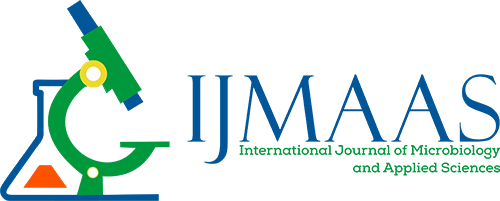Fungi Species Isolated From Seeds of a Selected Landrace of Sorghum (Sorghum bicolor L. Moench) Sold in Sabon Gari Market, Kaduna State, Nigeria
Vol 3, Issue 1, 2024
KEYWORDS
Fungi, Sorghum bicolor, post harvest, storage, pathogens, molecular characterization.
Abstract
Fungi are ubiquitous and infect cereals particularly during storage resulting in economic loss. This study was conducted to isolate and characterize the fungi associated with varieties of Sorghum seeds (Sorghum bicolor (L) Moench). A local landrace “Kaura” was obtained from Sabon Gari market and stored for five months. The fungi were isolated using standard microbiological techniques. Five seeds from the landrace were picked randomly, washed and sterilized using 1% sodium hypochlorite to remove surface contaminants. The seeds were washed thrice with distilled water to remove any residual sodium hypochlorite and placed onto freshly prepared Potato Dextrose Agar Petri plates with three replications each. The cultured plates were incubated at 25-27°C for seven days after which the colonies that appeared were counted and recorded. Each colony was subsequently subcultured to obtain pure isolates. Identification was based on macroscopic, microscopic features and molecular characterization at Centre for Agriculture and Biological Institute Eigham, United Kingdom. Seven different fungi found to be associated with the selected Sorghum and frequency of isolation were; Aspergillus flavus (25%), Aspergillus niger (25%), Fusarium oxysporum (17%), Fusarium solani (17%) Curvularia lunata (08%), Penicillium chrysogenum (05%) and Didymaria (03%). Some of these fungi are known potential pathogens and mycotoxin producers. There is therefore the need to devise good storage facilities to prolong the shelf life of sorghum seeds after harvest. Physical damage to seeds should also be avoided since they serve as major points of entry for pathogens. These will help to safeguard the public health.
Current: Vol. 4, Issue 1, 2025

Call for papers
The International Journal of Microbiology and Applied Sciences warmly welcome your valuable articles for publication.
